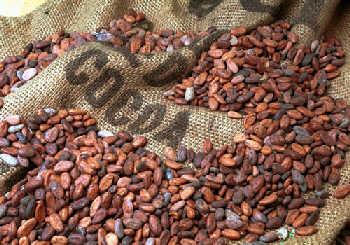Why do some coffee beans have a shiny surface?
"Coffee oil" itself contains many aroma ingredients of coffee, which can be dissolved in water, so the surface of your brewed coffee will not be covered with greasy oil.
There are two reasons: oil beans.

A) stale moderately baked beans
The "medium-light baked beans" with light roasting heat and light brown appearance are dry and will not produce oil after baking. About six days after baking, the phenomenon of "dotted oil" begins to appear (dotted oil droplets appear on one side of the coffee bean). Slight "dotted oil" does not mean that it is not fresh, but sometimes the flavor of medium-shallow roasted coffee beans is at its peak. Continue to put, more than two weeks after the oven, the surface of medium-shallow baked beans gradually appeared a layer of bright oil, at this time, the flavor of "medium-shallow baked beans" has begun to decline, should avoid buying.
B) fresh deep baked beans
Deep-baked beans with dark brown appearance show a slight glossy appearance after baking, and a large amount of oil begins to appear on the surface from the second day to the fifth day after baking. The bright-looking "deep-baked beans" not only do not mean that they are not fresh, on the contrary, the deep-baked beans will gradually dry out three weeks after they come out of the oven, and finally become dry-flavored beans. Therefore, if you see coffee beans that are dry but dark brown in appearance, please pay special attention to their baking date, which is most likely to be spoiled beans.
Important Notice :
前街咖啡 FrontStreet Coffee has moved to new addredd:
FrontStreet Coffee Address: 315,Donghua East Road,GuangZhou
Tel:020 38364473
- Prev

Six kinds of world-famous Ethiopian coffee
1. Limu coffee grows between 1400 meters and 2000 meters above sea level. Wash the coffee. Excellent quality, with strong nut aromas, suitable acidity, with the intensity of wine. The annual output is 29000 tons. 2. Jima Coffee grows between 1400 and 1800 meters above sea level. Sun-baked coffee. Slightly sour, with nutty aromas and a long finish. The annual output is 70000 tons. 3. Growth of Gamby Coffee
- Next

Coffee beans can be preserved in the following ways
Roasted coffee beans are easily exposed to oxygen in the air to produce oxidation, which deteriorates the oil quality, volatilizes and disappears aroma, and then accelerates deterioration through temperature, humidity, sunshine and so on.
Related
- Guji coffee producing area of Guji, Ethiopia: Humbela, Shakiso, Wulaga
- What is the most expensive variety of Qiloso in BOP multi-variety group?
- How to store the coffee beans bought home?
- Why are Yemeni coffee beans so rare now?
- Ethiopian Sidamo all Red Fruit Sun Sun Santa Vini Coffee beans
- SOE is mostly sour? What does it mean? Is it a single bean? what's the difference between it and Italian blending?
- Is Italian coffee beans suitable for making hand-brewed coffee?
- How to choose coffee beans when making cold coffee? What kind of coffee beans are suitable for making cold coffee?
- Just entered the pit to make coffee, what kind of coffee beans should be chosen?
- Can only Japan buy real Blue Mountain Coffee? What are authentic Jamaican Blue Mountain coffee beans?

